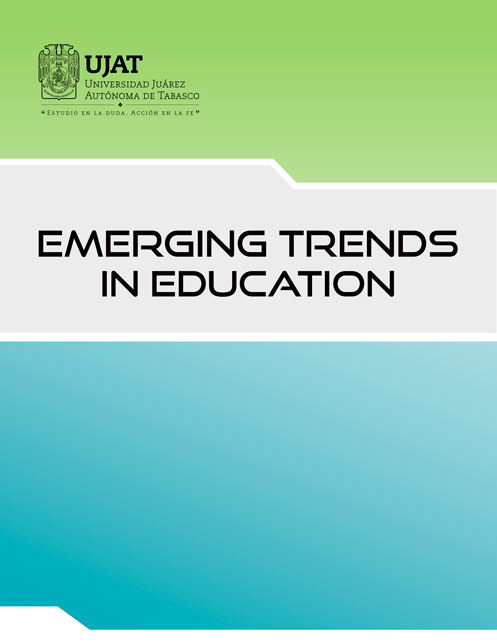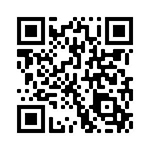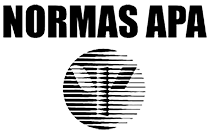Results of a course on news analysis in social networks and epistemological beliefs
DOI:
https://doi.org/10.19136/etie.a7n13.6298Keywords:
fake news, disinformation, epistemology, social networks, higher educationAbstract
The Internet is currently the most relevant source of information; however, it is necessary to know how to distinguish news whose content may be malicious, misleading, or false. Much has been emphasized on the skills to analyze fake news from its structure, hand in hand with media literacy, but little work has been done on the psychological variables of the participants that can prevent them from accepting fake news without critical analysis. In this sense, epistemological beliefs are a variable to be taken into account. In this paper, we analyzed the results of a three-week course of news analysis in social networks on epistemological beliefs, including topics on cognitive biases and media literacy. Fifty-eight higher education students and 22 graduate students participated. Subsequently, we verified the change in epistemological beliefs by applying the Internet-Specific Epistemological Beliefs Questionnaire in two measurements, pretest, and posttest, in two editions of the course. As a result, we detected statistically significant changes in two components that favored the participant's perspective as a knowledge builder and the Internet as a questionable source. We concluded that it is necessary to continue with this model of instruction to empower news readers to make better decisions regarding the information they receive.
References
Acona, L. (2018). Influencia de las noticias falsas en la opinión pública. Estudio Comunicación. https://bit.ly/3NAaIu6
Allcott, H. & Gentzkow, M. (2017). Social media and fake news in the 2016 election. Journal of Economic Perspectives, 31(2), 211–236. http://doi.org/10.1257/jep.31.2.211
Álvarez, N., Pico, P. y Holgado, J.A. (2021). Detección de Noticias Falsas en Redes Sociales Basada en el Aprendizaje Automático y Profundo: Una breve revisión sistemática. RISTI, 41, 632-645. https://dialnet.unirioja.es/servlet/articulo?codigo=8610723
Barragán, X. (1 de febrero de 2021). Nosode Covid-19, alternativa natural para el control del virus SarsCocv-2 que creó experto de U. de Chapingo. Diario El Portal. https://diarioportal.com/2021/02/01/nosode-covid-19-alternativa-natural-para-el-control-del-virus-sarscocv-2-que-creo-experto-de-u-de-chapingo/
Beck, S. J., Boldt, D., Dasch, H., Frescher, E., Hicketier, S., Hoffmann, K., Husemann, R., Kaul, S., Kustermann, J. N., Molitor, J., Ohland, C., Posmyk, J., Richter, J., Sawatzki, D., Schürle, A., Stoffers, L., Uhe, L., & Weber, J. (2020). Examining the Relationship between Epistemic Beliefs (Justification of Knowing) and the Belief in Conspiracy Theories. PsychArchives. https://doi.org/10.23668/PSYCHARCHIVES.3149
BrÅten, I., StrØmsØ, H. I., & Samuelstuen, M. S. (2005). The relationship between Internet-specific epistemological beliefs and learning within Internet technologies. Journal of Educational Computing Research, 33(2), 141-171.
Cano, F. (2005). Epistemological beliefs and approaches to learning: Their change through secondary school and their influence on academic performance. British Journal of Educational Psychology, 75(2), 203–221. https://doi.org/10.1348/000709904X22683
Castillo, V., Hermosilla, P., Poblete, J.P. y Durán, C. (2021). Noticias falsas y creencias infundadas en la era de la posverdad. Universitas, 34, 87-108. https://doi.org/10.17163/uni.n34.2021.04
Celik, I., Muukkonen, H., & Dogan, S. (2021). A model for understanding new media literacy: Epistemological beliefs and social media use. Library & Information Science Research, 43(4), 101125. https://doi.org/10.1016/j.lisr.2021.101125
Epstein, S. (1998). Constructive Thinking: The key to emotional intelligence. Prager.
Escobar, M., Quintanilla, M. & Santos-Requejo, L. (2018). Perfiles de cultura científica ciudadana. Sus características y su relación con prácticas no científicas. En: Percepción social de la Ciencia y la Tecnología 2018. (pp. 86-105). Fundación Española para la Ciencia y la Tecnología FECyT.
European Commission. (2016). Special eurobarometer 452. Media pluralism and democracy. https://bit.ly/2gkbn6H
Gómez, R. (2019). Psicología y posverdad. Noticias falsas, pensamiento autoritario y rigidez cognitiva. http://dx.doi.org/10.13140/RG.2.2.23499.75043
Gragnani, J. (18 septiembre 2018). Guía básica para identificar noticias falsas (antes de mandarlas a tus grupos de WhatsApp. BBC News Brasil. https://www.bbc.com/mundo/noticias-45561204
Hofer, B., & Pintrich, P. (1997). The development of epistemological theories: Beliefs about knowledge and knowing and their relation to learning. Review of educational research, 67(1), 88-140.
Ireton, C., & Posetti, J. (2018). Journalism, fake news & disinformation: handbook for journalism education and training. Unesco Publishing. https://www.gcedclearinghouse.org/sites/default/files/resources/200255spa.pdf
Kahneman, D. (2011). Thinking, fast and slow. Macmillan.
Kammerer, Y., Gottschling, S., & Bråten, I. (2021). The role of internet-specific justification beliefs in source evaluation and corroboration during web search on an unsettled socio-scientific issue. Journal of Educational Computing Research, 59(2), 342-378. https://doi.org/10.1177/0735633120952731
Lazer, D., Baum, M., Benkler, Y., Berinski, A., Greenhill, K., Menczer, F., Metzger, M., Nyhan, B., Pennycook, G., Rothschild, D., Schudson, M., Sloman, S., Sunstein, C., Thorson, E., Watts, D., & Zittrain, J. (2018). The science of fake news. Science, 359(6380), 1094-1096. http://doi.org/10.1126/science.aao2998
Lee, T., Johnson, T. J., & Weaver, D. H. (2022). Navigating the Coronavirus Infodemic: Exploring the Impact of Need for Orientation, Epistemic Beliefs and Type of Media Use on Knowledge and Misperception about COVID-19. Mass Communication and Society, 1-26. https://doi.org/10.1080/15205436.2022.2046103
Merrill, D. (2009). First Principles of Instruction, Chapter 3. In C. M. Reigeluth & A. Carr (Coord.), Instructional Design Theories and Models: Building a Common Knowledge Base (Vol. III), Routledge Publishers. https://mdavidmerrill.files.wordpress.com/2019/04/firstprinciplesbymerrill.pdf
Meza, J. (2018) La construcción de un entorno personal de aprendizaje y su relación con la autorregulación y epistemología personal: efectos de un taller. [Tesis de doctorado, Universidad Nacional Autónoma de México]
Pew Research Center. (2018). Social media outpaces print newspapers in the U.S. as a news source. https://pewrsr.ch/2UvWPSe
Santiago, M. (2 de enero de 2021) El «nosode» que ha salvado de morir de COVID a 7 mil mexicanos. Reporteros en Movimiento. https://reporterosenmovimiento.com/2021/01/02/el-nosode-que-ha-salvado-de-morir-de-covid-a-7-mil-mexicanos/
Rodríguez, C. (2019). No diga fake news, di desinformación: una revisión sobre el fenómeno de las noticias falsas y sus implicaciones. Comunicación, 40, 65-74. https://doi.org/10.18566/comunica.n40.a05
Rogers, P., Fisk, J., & Lowrieb, E. (2018). Paranormal belief, thinking style preference and susceptibility to confirmatory conjunction errors. Consciousness and Cognition, 65, 182-196. https://doi.org/10.1016/j.concog.2018.07.013
Rottenbacher, J. (2012). Conservadurismo político y rigidez cognitiva en una muestra de estudiantes y egresados universitarios de la ciudad de Lima. Avances en Psicología Latinoamericana, 30(2), 257-271. https://revistas.urosario.edu.co/index.php/apl/article/view/1768
Rudloff, J. P., & Appel, M. (2022). When truthiness trumps truth: Epistemic beliefs predict the accurate discernment of fake news. Journal of Applied Research in Memory and Cognition, 12(3), 344–351. https://doi.org/10.1037/mac0000070
Serrano, D. M., Crone, T., & Williams, P. S. (2023). Exploring the Role of Multiplist Epistemic Beliefs on COVID-19 Conspiracies and Prevention Among Undergraduates. Science & Education. https://doi.org/10.1007/s11191-023-00447-2
Schiefer, J., Edelsbrunner, P. A., Bernholt, A., Kampa, N., & Nehring, A. (2022). Epistemic beliefs in science—a systematic integration of evidence from multiple studies. Educational Psychology Review, 34(3), 1541-1575. https://doi.org/10.1007/s10648-022-09661-w
Sülflow, M., Schäfer, S., & Winter, S. (2019). Selective attention in the news feed: An eye-tracking study on the perception and selection of political news posts on Facebook. New media & society, 21(1), 168-190. https://doi.org/10.1177/1461444818791520
Downloads
Published
Issue
Section
License
Copyright (c) 2024 Emerging Trends in Education

This work is licensed under a Creative Commons Attribution-NonCommercial-NoDerivatives 4.0 International License.





























